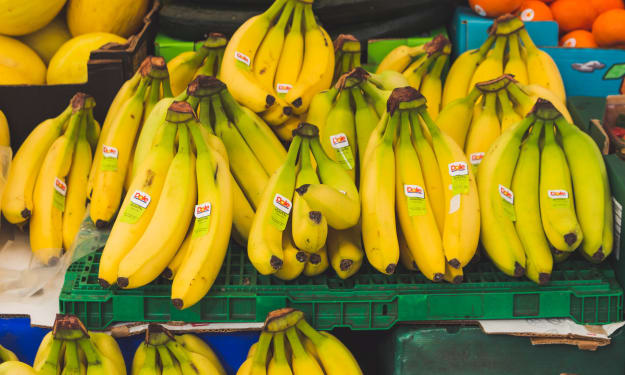
Back in 2017, I joined an interesting summer club - pickleball and chess. Three years earlier my family and I had moved from New Jersey to the suburbs of North Carolina. Prior to that move, I had never heard of pickleball before, although I learned quickly enough - North Carolinians were crazy about it.
After we moved, my dad and I played on the court near our house, though we didn’t really follow any official rules. When I was in that club I learned the official rules, how to hit a plastic ball around with a rectangular paddle, and also how much ice water is needed to survive North Carolina’s hot summers. (Oh and I also got a lot better at chess.) Personally, I thought that pickleball was nothing more than a product of someone who mixed up the rules of tennis and badminton, and voilà! Pickleball. (Sorry y’all, I’m on team badminton.) However, little did I know that pickleball was about to stun the world.
Pickleball has skyrocketed in popularity in recent years, and it continues to climb and climb. As of this year, pickleball is the fastest-growing sport in America and is even making a splash on the global stage. A study showed that a whopping 36 million people played pickleball in 2022. In case you didn’t know, pickleball is a paddle sport that combines elements of tennis, badminton, and table tennis. The sport is played on a smaller court with a lower net and a perforated plastic ball called a wiffle ball. (I literally called it a waffle ball my entire life…) Pickleball is easy to learn and can be played by people of all ages and skill levels, which has contributed to its growing popularity.
But the rise of pickleball has also led to the rise of pickleball wars. Yes, I mean literally.
Pickleball Culture Wars, Noise Pollution, & The Rise Of The Anti-Pickleball Movement
In 2022, the governor of Washington, Jay Inslee, signed bill SB 5615. Following a bipartisan vote, pickleball became the official sport of Washington state. At the signing, Inslee proclaimed to a laughing audience, “Amongst those rights being the right to life, liberty, and the pursuit of pickleball.”
Amongst those rights being the right to life, liberty, and the pursuit of pickleball.
That was only the beginning.
The Fight For Resources
The rise of pickleball has also been accompanied by the growth of pickleball communities, including pickleball clubs, leagues, tournaments, and events. This has led to an increase in political activism within the pickleball community, as players and enthusiasts advocate for better facilities and resources. Even in my home city of Chapel Hill, pickleball protesters crashed a town council meeting demanding funding for pickleball playing space.
Pickleball players sit in the audience of the Chapel Hill Town Council’s work session on Monday, October 3. (Photo via the Town of Chapel Hill.)
Territorial Tennis Players & Culture Wars
Meanwhile many tennis players and other racket sport players protested the rise of pickleball. As more and more people joined pickleball communities, other sports were increasingly being crowded off courts. Many towns and cities also renovated tennis and basketball courts in order to turn them into pickleball courts. In Seattle, territorial tennis players blocked off courts from children and families who they complain are “cannibalizing” their facilities with an “inferior activity.” In California and Georgia, the animosity has escalated to acts of vandalism, while a group of tennis players in Brooklyn penned a manifesto that warns pickleball is a neoliberal conspiracy to destroy the “radical collective imagination.” In Virginia, concerned activists distributed intentionally “inflammatory” flyers urging the community to consider the effects of building even more pickleball courts. Trust me, when Hollywood, Fox News, and AOC start talking about pickleball — it’s definitely a culture war.
Intra-Pickleball Wars
Some communities are also working and petitioning to have pickleball recognized as an Olympic sport. Some players believe that the sport should remain a casual activity played in backyards and community centers. Others argue that it should become a professional sport with serious competitions and big money prizes. This clash of cultures has led to heated debates about the future of the sport. Some argue that professionalization will lead to greater recognition and respect for pickleball, while others fear that it will lead to the commercialization of a sport that was meant to be fun and accessible.
Pickleball & The Rise of Noise Ordinances
The sport can be quite loud, with players hitting hard plastic balls with paddles that make a distinct popping sound. This noise can be heard from a distance and can be disruptive to nearby residents and community members. To address this issue, some communities have implemented noise ordinances and restricted playing times. For example, some parks and recreation centers only allow pickleball to be played during certain hours or on certain days. However, this has led to frustration for pickleball enthusiasts who feel that their sport is being unfairly targeted. This has led to legal action, the closure of pickleball courts, protests, and the rise of noise ordinances. Noise ordinances often put restrictions on when, where, and how often communities are allowed to play pickleball.
One article even proclaimed: “[This] rapidly-growing racket sport seems to be gaining haters almost as fast as players.” Another claimed that pickleball “pits neighbor agianst neighbor.”
[This] rapidly-growing racket sport seems to be gaining haters almost as fast as players
Final Thoughts
Of course, pickleball is only a sport. But to so many people it is more than that. It’s a whole community of people who are passionate about their sport and the people they play with. The community, borne of the height of the pandemic, is an incredibly strong one. From raising money to support cancer patients to supporting veterans, and of course, advocating for their sport. The sport has seen an exponential rise in popularity over the past decade, but this growth has come with a slew of controversies and politics. Regardless, one thing is certain: the rise of pickleball and its influence, both good and bad, is here to stay.
Cross-published on my Medium account. Check it out below!
About the Creator
Reader insights
Nice work
Very well written. Keep up the good work!
Top insights
Excellent storytelling
Original narrative & well developed characters
Expert insights and opinions
Arguments were carefully researched and presented
Eye opening
Niche topic & fresh perspectives
On-point and relevant
Writing reflected the title & theme






Comments
There are no comments for this story
Be the first to respond and start the conversation.